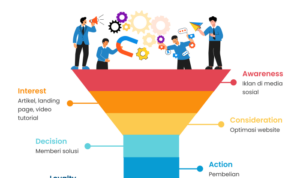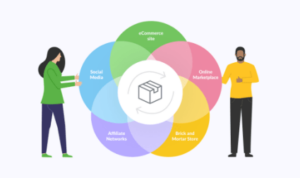Online Community Building sets the stage for creating thriving digital communities, exploring strategies, content creation, moderation, and measuring success. Get ready for a deep dive into the world of online connections!
Introduction to Online Community Building
Online community building refers to the process of creating and nurturing a group of individuals with shared interests or goals in a virtual space. It is essential for businesses, organizations, and individuals alike as it fosters engagement, collaboration, and loyalty among members. By building and maintaining online communities, you can establish a sense of belonging, trust, and connection that can lead to long-lasting relationships and mutual support.
Benefits of Online Community Building
- Increased brand loyalty and customer retention
- Enhanced customer support and feedback
- Opportunities for collaboration and co-creation
- Access to valuable insights and market research
- Boosted brand awareness and reach through word-of-mouth marketing
Examples of Successful Online Communities
- Reddit: With millions of active users, Reddit has become a hub for discussions, sharing of content, and community engagement across various topics and interests.
- Stack Overflow: A platform for developers to seek help, share knowledge, and build their professional network, Stack Overflow has revolutionized the way programmers collaborate and learn from each other.
- Peloton: The Peloton community has transformed the way people approach fitness by providing a supportive environment for members to connect, compete, and motivate each other in their fitness journeys.
Strategies for Building an Online Community

Building an online community takes more than just setting up a platform. It requires a thoughtful approach, engagement, and a commitment to fostering meaningful connections. Here are some strategies to help you kickstart your online community:
Initiating an Online Community
- Identify your target audience: Understand who you want to attract to your community and tailor your content and engagement strategies to appeal to them.
- Create a compelling brand identity: Develop a strong brand that reflects the values and interests of your target audience to attract like-minded individuals.
- Utilize multiple channels: Promote your community across various platforms like social media, email newsletters, and partnerships to reach a wider audience.
Platforms for Hosting Online Communities
- Facebook Groups: A popular choice for creating communities due to its large user base and familiar interface.
- Discord: Ideal for gaming and hobby communities with features like voice chat and custom roles.
- Reddit: Great for niche communities with its subreddit system and voting mechanism.
Engaging and Retaining Community Members
- Regularly post relevant content: Keep your community active and engaged by sharing valuable information, updates, and discussions.
- Encourage interaction: Prompt members to participate by asking questions, hosting contests, or creating polls to spark conversations.
- Recognize and reward contributions: Acknowledge and appreciate active members with shoutouts, badges, or exclusive perks to foster a sense of belonging.
Content Creation and Curation
Content is the lifeline of any online community, serving as the foundation for building connections, sharing knowledge, and fostering engagement among members. Through carefully crafted content, community managers can shape the identity of the community, attract new members, and keep existing ones actively participating.
Role of Content in Fostering a Strong Online Community
Creating valuable and relevant content is essential for establishing a sense of belonging and encouraging members to interact with each other. Content acts as a bridge that connects individuals with shared interests, sparking conversations, and driving community engagement.
- Regularly Post Engaging Content: Consistent posting of high-quality content keeps members coming back for more and encourages active participation.
- Encourage User-Generated Content: Empower community members to share their own stories, experiences, and insights to create a sense of ownership and belonging.
- Utilize Various Content Formats: Mix text, images, videos, polls, and other interactive elements to cater to different preferences and keep the community dynamic.
Best Practices for Creating Engaging Content for Community Members
Engaging content is the key to capturing and retaining the interest of community members. By following best practices for content creation, community managers can ensure that their content resonates with the audience and drives meaningful interactions.
- Know Your Audience: Understand the demographics, interests, and preferences of your community members to tailor content that meets their needs.
- Tell Compelling Stories: Share narratives that evoke emotions, inspire action, or provide valuable insights to create a deeper connection with the audience.
- Encourage Dialogue: Pose questions, start discussions, and actively engage with members to foster a sense of community and encourage participation.
Importance of Curating Content to Maintain Community Interest
Curating content involves selecting, organizing, and presenting information in a way that adds value to the community. By curating content, community managers can ensure that the community remains vibrant, relevant, and engaging over time.
- Filtering Information: Curate content to highlight the most valuable and relevant information, helping community members stay informed and engaged.
- Creating Resource Libraries: Build curated collections of content on specific topics or themes to serve as valuable resources for community members.
- Updating and Refreshing Content: Regularly review and refresh existing content to keep it current, accurate, and engaging for both new and returning members.
Community Moderation and Management

Online communities are like a digital hangout spot where people come together to share ideas, opinions, and experiences. But just like in real life, sometimes things can get a little messy. That’s where moderation and management come into play to keep the community running smoothly and ensure a positive environment for everyone involved.
Significance of Moderation, Online Community Building
Community moderation is essential to maintain order and ensure that members abide by the rules and guidelines set by the community. It helps prevent toxic behavior, spam, and inappropriate content from taking over, creating a safe space for meaningful interactions.
Handling Conflicts and Maintaining a Positive Environment
- Establish clear guidelines: Clearly Artikel what behavior is acceptable and what is not, so members know what is expected of them.
- Act swiftly: Address conflicts or inappropriate behavior promptly to prevent escalation and maintain a positive atmosphere.
- Encourage open communication: Foster a culture of open dialogue and encourage members to voice their concerns respectfully.
- Lead by example: Set a positive tone as a moderator or community manager to influence others to follow suit.
Tools and Resources for Managing an Online Community
- Community management platforms: Use tools like Discord, Slack, or Facebook Groups to organize discussions, events, and announcements.
- Analytics tools: Monitor community engagement and gather insights into member behavior to make informed decisions.
- Moderation bots: Automate repetitive moderation tasks, such as filtering out spam or offensive content, to save time and maintain order.
- Community guidelines template: Create a set of guidelines for members to follow, outlining expectations and consequences for violating the rules.
Measuring Success and Growth: Online Community Building
When it comes to online communities, measuring success and growth is crucial to understand the impact and effectiveness of your efforts. Here we will dive into key metrics for measuring success, strategies for scaling your community, and real-life examples of successful growth strategies.
Key Metrics for Measuring Success
- Engagement Rate: Measure the level of interaction within the community, such as likes, comments, shares, and discussions.
- Membership Growth: Track the number of new members joining the community over time.
- Retention Rate: Monitor how many members continue to engage with the community over a period of time.
- Conversion Rate: Measure the percentage of members who take desired actions, such as making a purchase or attending an event.
Strategies for Growing and Scaling
- Create Valuable Content: Consistently provide valuable and relevant content to attract and retain members.
- Engage with Members: Foster a sense of community by actively engaging with members, responding to comments, and encouraging discussions.
- Promote Your Community: Utilize social media, email marketing, and partnerships to promote your community and attract new members.
- Collaborate with Influencers: Partner with influencers or industry leaders to expand your reach and attract new members.
Successful Community Growth Examples
- Reddit: Reddit has grown into one of the largest online communities by focusing on user-generated content and fostering a sense of belonging among members.
- Facebook Groups: Facebook Groups have successfully scaled by providing a platform for like-minded individuals to connect, share information, and support each other.
- Meetup: Meetup has grown by facilitating in-person gatherings and events for members with similar interests, creating a strong sense of community.





